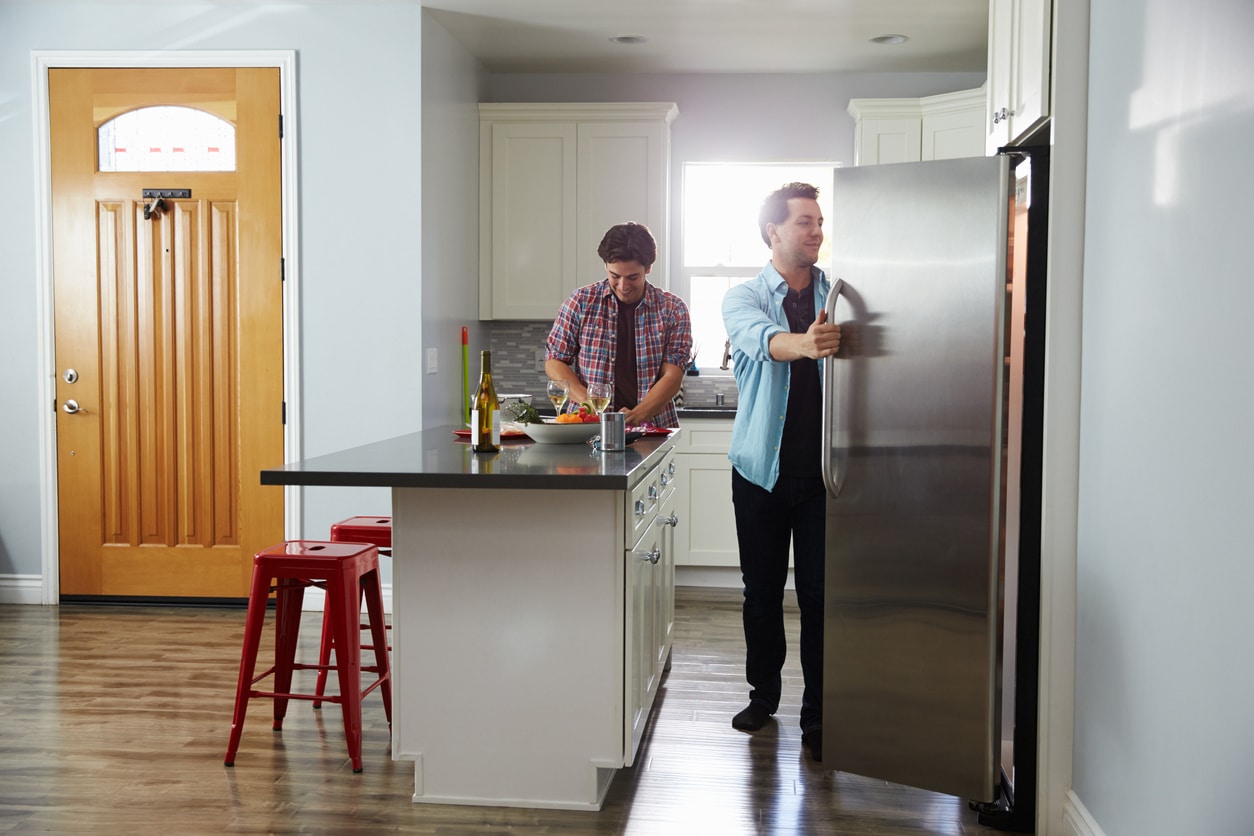
Fixing Your Appliances Yourself: Best Home Projects for Sustainability

DIYing appliance repairs is a great way to save time and money. You don’t need a maintenance background to fix small problems, and with a bit of research and the right tools, you can tackle home projects with confidence.
Perhaps the biggest benefit of fixing your appliances yourself is the sustainability factor. Extending the life of your existing appliances is less wasteful. It can also ensure they’re remaining efficient and using less energy.
Manufacturing new appliances is a large use of resources. It takes a lot of energy, transportation, and manpower that could be utilized elsewhere. It’s much more environmentally-friendly to repair or replace appliance parts, rather than purchasing an entirely new machine when yours breaks down.
With that in mind, let’s look at some of the best home projects for sustainability, and why repairing certain appliances yourself is better for the environment. You can even make the repairs part of your spring cleaning tasks.
Refrigerator/Freezer
Opening up your refrigerator only to realize your items aren’t as cold as they should be is something no one wants to deal with. Opening up the freezer to see your ice cream has melted and everything else has thawed out…what a mess!
A refrigerator/freezer that isn’t working properly might seem overwhelming, but there are a few common culprits which could be causing the problem. Some of the main issues often include:
- Clogged or dusty condenser coils
- Broken condenser fan
- Broken evaporator fan
- Broken air inlet damper
- Evaporator coils covered in frost
Thankfully, you can usually repair these things in a matter of minutes, or find replacement parts to fix the problem, rather than getting rid of the refrigerator for a new model. The average lifespan of a refrigerator is about 10 years, so if yours starts acting up before then, it’s worth it to repair it rather than buy something new.
Keeping your fridge properly maintained will ensure it’s more energy efficient and contribute to a more sustainable household. So, if you’re starting to notice signs it isn’t cooling properly or it’s leaking liquid, don’t wait to try to repair it.
Dishwasher
Cleaning and deodorizing your dishwasher regularly will help it to run more efficiently (and keep your dishes cleaner). Dishwashers that aren’t running efficiently often waste water and probably aren’t sanitizing your dishes properly.
It’s easy to keep your dishwasher clean and efficient. You can avoid using harsh chemicals by utilizing vinegar as a natural cleaning/deodorizing component. Simply place a bowl of white distilled vinegar in the bottom of your empty dishwasher, and run a hot water cycle.
The vinegar will help to break down leftover food particles, grease, and grime. It will also serve as a natural deodorizer, so you won’t have any strange smells lingering after each cycle.
Oven & Microwave
Whether you like to cook or you like convenience, the oven and microwave are two of the most commonly used appliances in any kitchen. It’s important to keep them clean and well-maintained so they function properly and efficiently. Regular cleaning of both appliances can be done similarly to the dishwasher.
A bowl of vinegar can be placed in both. Microwave the vinegar for a few minutes before wiping the inside of the appliance clean. To scrub your oven, let the vinegar sit in the warm box for 1-2 hours before wiping everything clean. You can also make a solution of baking soda and vinegar, spray the walls of your oven, and scrub everything away.
If your oven isn’t working properly, it could be the result of:
- A broken wire
- Bad heating element
- Not enough power coming to the unit
When it comes to broken parts, they’re usually easy to replace or repair. However, if you’re nervous about working with electricity, this may be one scenario where it’s safer to call an electrician.
If your microwave stops working, it’s likely an electrical issue, as well. Transformer failure can be fixed, but if you’re not able to repair it on your own or it’s over 10 years old, you might want to consider recycling it. Be sure to replace it with an energy-efficient model!
Heating and Cooling Appliances
There’s nothing worse than being too hot in the summer or freezing cold in the winter! Most of us rely on our heating and cooling appliances to stay comfortable all year long, so when things start to go wrong, it’s important to spring into action quickly.
While it can be difficult to fix a broken HVAC system on your own, you can do your part to prevent breakdowns by keeping them well maintained. Some things you can do on your own to preserve the life of your heating and cooling appliances include:
- Cleaning the condenser
- Checking/changing the filters
- Cleaning drain lines
- Checking around outdoor units and removing any debris
It’s also a good rule of thumb to have your HVAC system professionally maintained each year. There are maintenance fees involved, and a bit of energy expended from transportation, but it’s a small price to pay – from your wallet and the environment – to keep things running efficiently. Heating and cooling appliances can use a lot of energy, even when they are working properly. When they aren’t maintained and running efficiently, they could be wasting a lot more.

It’s easier to maintain and repair most appliances than you might think. But, even if you aren’t comfortable fixing them on your own, you can take the initiative to keep things clean and check them frequently. Maintenance will help to ensure efficiency and improve the sustainability of your home for years to come.



Hannah
Thank you for sharing! As for the fridge, the first sign that your refrigerator “is not feeling ok” may be the noise. Actually, most of the strange sounds like the whirring, buzzing, dripping, popping, crackling, etc., can be safely attributed to the refrigerator working properly. But if there are angry and alarming sounds coming from your fridge, pay attention to the compressor. Most of the noise comes from the compressor because it does most of the work.
So the first thing to do is to make sure that the compressor is running properly. Make sure that the back of the fridge is clean and clear of any objects or debris. The fridge must be properly located and placed on an even surface to work correctly. The power supply must be steady and of the correct voltage.